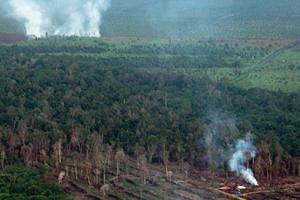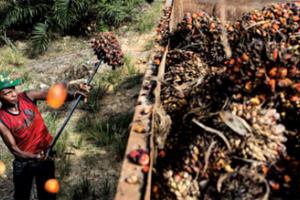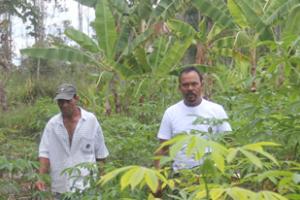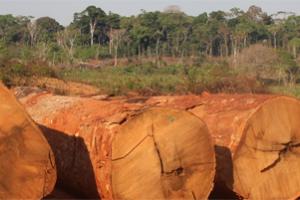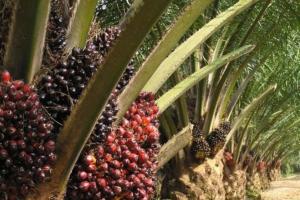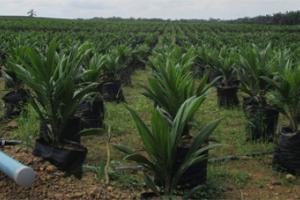Historically, relations between Mapuche indigenous communities and the forestry industry have been marked by conflict, primarily because of the expansion of industrial tree plantations on lands that are part of the Mapuche territory and the impact of these plantations on the communities’ habitat.
Large-Scale Tree Plantations
Industrial tree plantations are large-scale, intensively managed, even-aged monocultures, involving vast areas of fertile land under the control of plantation companies. Management of plantations involves the use of huge amounts of water as well as agrochemicals—which harm humans, and plants and animals in the plantations and surrounding areas.
Bulletin articles
7 March 2014
Other information
5 February 2014
Action alerts
29 January 2014
Herakles Farms is engaged in the development of a controversial 20,000 ha oil palm plantation in the South-West Region of Cameroon that faces strong opposition from affected communities.
Action alerts
29 January 2014
On 29 January 2014, a letter was sent by several NGOs to relevant UN Special Rapporteurs requesting they investigate and intervene in these cases of acts of repression and criminalisation of local organisations and activists in Cameroon.
You can learn more about the case here:
Other information
23 December 2013
Eight activists of Robin Wood, a grassroots group in Germany, were sued in October 2013 for taking part in a peaceful demonstration to protect Indonesian rain-forests. In September, the activists hung a banner at Wilmar‘s palm oil refinery plant in Germany saying "Wilmar's refined destruction - No palm oil from deforestation". They were convicted for "assault".
Bulletin articles
23 December 2013
On December 9, 2013, a meeting was called in Pujehun District over the lease of 6,500 hectares of prime farmland in this southeastern part of Sierra Leone. Local sources said elders called the meeting to allow people to again express their grievances to the Paramount Chief over the lease of land to the Socfin Agricultural Company.
Bulletin articles
23 December 2013
Photo: E. Benjamin Skinner
Malaysia
Malaysiahas become a destination for migrant workers from other Southeast Asian countries– mainly Indonesia, Thailand, andBangladesh – who usually occupy low-wage unskilled jobs in different sectors including the labor-intensivepalm oil industry.
Bulletin articles
23 December 2013
Bulletin articles
23 December 2013
Photo: credito: Greenpeace/Alex Yallop
On 25 November 2013, the President of Cameroon issued three decrees granting 19,843 ha of native land to SGSustainable Oils Cameroon/Herakles Farms in southwest Cameroonfor the establishment of a large-scale oil palm plantation.
Bulletin articles
23 December 2013
In the business world, “sustainability” promises, among other things, that economic activity does not violate the rights of the communities affected, and that future generations will be able to continue to benefit from the natural setting where the activity is practiced. NGOs, companies and governments who promote “sustainable forest management” (SFM) claim that this is possible to achieve in tropical forests, using certification from the Forest Stewardship Council (FSC) as a guarantee.
Other information
3 December 2013
The No REDD in Africa Network (NRAN) initiated the “Week of Action Against False Solutions”, from October 28 to November 4. The action, joined by the global convergence Reclaim Power! http://reclaimpower.net/, opposes the “dirty energy” and the companies who try to greenwash themselves with false solutions like REDD and other false solutions such as carbon trading, CDM, 'green economy', biodiversity offsets, CCS, geo-engineering and of course the big false solution- 'clean coal'.

